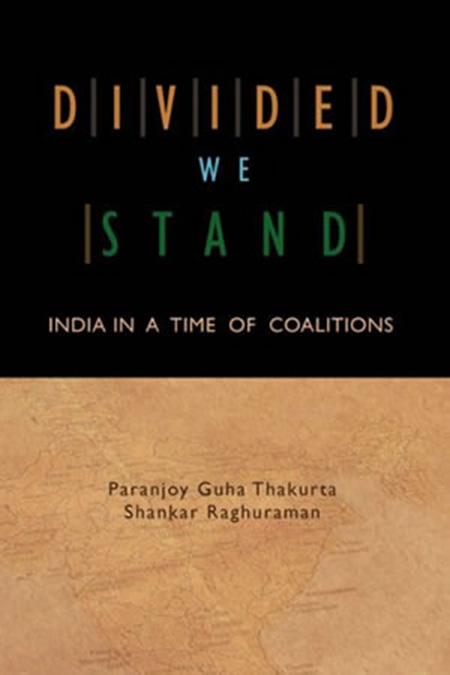It is not every day that promoters or directors of large real estate companies have to spend time behind bars for allegedly duping home buyers. So when four directors of Unitech Limited, the country’s second-largest real estate financing firm, found themselves in judicial custody on Monday on being unable to complete bail formalities, it was bound to be news.
For big builders, the episode came as a strong jolt, and share prices of realty companies came tumbling down. For flat buyers, who regularly find themselves at the mercy of developers’ unscrupulousness, it was a heartening message, particularly since a bill to set up a consumer-friendly real estate regulator is currently awaiting Rajya Sabha’s approval.
The Unitech directors – chairman Ramesh Chandra, managing directors Sanjay Chandra and Ajay Chandra, and director Minoti Bahri – were hauled to court by two complainants on charges of cheating after they were allegedly not given timely possession of flats in Greater Noida. The directors also stood accused of flouting court orders directing them to refund the money taken from the complainants along with 11% interest, altogether over Rs 1 crore.
On Monday, Additional Chief Metropolitan Magistrate Gaurav Rao sentenced them to 14 days’ custody, while refusing them bail. He said they had made a “mockery” of the law. “Such is their clout in society that no FIR [first information report] is easily registered against them, NBWs [non-bailable warrants] against them are not executed and it is only upon intervention of the courts that they mend their ways,” the magistrate observed.
That order was overturned an hour later by Additional Sessions Judge Vimal Kumar Yadav after the Unitech directors undertook to settle all pending dues with complainants. However, since the accused men were unable to complete the necessary formalities for bail by the end of the working day, they had to spend the night in jail.
The episode comes at a time when the fortunes of Unitech are on the wane. It further tarnishes the reputation of the company that is already battered because of its alleged involvement in the 2G scam.
Making a big profit
In 2011, Unitech’s Sanjay Chandra was arrested after he was accused of criminal conspiracy and collusion with disgraced former Union Minister for Communications Andimuthu Raja in what is popularly known as the 2G spectrum scam. The fraud related to the mis-allocation and mis-pricing of electromagnetic spectrum used for mobile telecommunications, and Sanjay Chandra had to spend eight months behind bars between April and November 2011.
The ghost of that scam continues to haunt Sanjay Chandra, although the firm he heads has virtually given up its interests in telecom. A number of criminal cases against him are still pending.
When A Raja was communications minister, the last date for receiving applications for telecom licences bundled with spectrum on a controversial first-come-first-served basis was suddenly advanced from October 1, 2007, to September 25, 2007, and that too retrospectively in January 2008. Unitech was the last group whose applications were favourably considered for allotment of licences.
Within a month of receiving 22 licences, companies in the Unitech group offloaded their 67.25% stake to Norway’s biggest telecom group Telenor, which was seeking to enter India. The two launched a joint venture named Uninor.
The Unitech group earned a huge profit in the deal – after paying an entry fee of Rs 1,658 crore, it received Rs 6,120 crore. In November 2010, in a report submitted to Parliament, the Comptroller & Auditor General of India estimated the value of these shares to be even higher at Rs 9,100 crore.
Following the arrest of Sanjay Chandra by the Central Bureau of Investigation on April 20, 2011, the Norwegian company issued a statement that read: “[The] Telenor group has earlier this month sent a letter to Unitech Ltd, requesting Sanjay Chandra to step down as chairman of the board of directors in Unitech Wireless.”
Fresh auctions
After eight months in Tihar Jail, Chandra was granted bail on November 23, 2011. But this did not spell the end of his troubles. In February 2012, after the Supreme Court cancelled the 22 licences issued to the Unitech group (which were among the 122 licences the court cancelled), it directed the group to pay a penalty of Rs 5 crore for the undue gains it received from spectrum allocations as well as for offloading the company’s shares, thereby transferring the ownership of the spectrum.
At that juncture, Telenor said it held Unitech liable for breach of warranties related to the cancellation of the licences and sought compensation for all its investments and guarantees, as well as damages caused by the Supreme Court order. Further, the Norwegian group made an indemnity claim against Unitech for its failure to obtain spectrum in the strategically important Delhi telecom circle.
On October 11, 2012, in the aftermath of a fierce legal battle, Unitech decided to exit its joint venture with Telenor, selling its 37.25% stake to a new Indian corporate entity setup by Telenor called Telewings Communications Services Private Limited, which was incorporated as a company in February 2012.
It was this entity that participated as a “new entrant” in the fresh auction of 2G spectrum mandated by the Supreme Court. At the auction held in November 2012, Telewings Communications Services Private Limited, or TCSPL, was declared a successful bidder in six service areas or telecom circles.
Within no time, a new controversy broke out. On November 23, 2012, TCSPL requested the Department of Telecommunications to set off the one-time entry fee of Rs 1,658.57 crore paid by the Unitech group in 2008, against the upfront payment of Rs 1,326.03 crore required to be paid on December 1, 2012, by TCSPL for the fresh allocation of 2G spectrum. TCSPL said the balance amount would be adjusted against the next instalment due from the company in December 2015.
Since a decision on its request was pending, the TCSPL made an upfront payment of Rs 437.59 crore, which was one-third of the amount to be paid to the Department of Telecommunications, “under protest” in December 2012.
Loss to the exchequer
Unitech’s alleged involvement in the 2G scam resurfaced in 2015 when a series of reports of the Comptroller and Auditor General of India indicted the United Progressive Alliance government’s decision to reimburse an amount of Rs 1,658.57 crore to Unitech group. The auditor alleged this “undue benefit” given to the Unitech group by an Empowered Group of Ministers, led by former Finance Minister P Chidambaram, violated the spirit of the February 2012 judgement of the Supreme Court and other regulations.
The draft report of the CAG – a copy of which is in the possession of this reporter – questioned the validity of the refund or set-off of the entry fee requested by TCSPL. It pointed out that a meeting took place on March 5, 2013, between the then Communications Minister Kapil Sibal with representatives of TCSPL along with the Ambassador of Norway to India where officers of Department of Telecommunications were also present.
At the meeting, the request of TCSPL for set-off of entry fee paid by the eight companies of Unitech group was discussed. Sibal desired that the matter may be placed before the Empowered group of Ministers. On the same day, a note for the Empowered Group of Ministers, was prepared and the request was approved at a meeting of the group, held a day later, on March 6, 2013.
According to the draft CAG report, the Empowered Group of Ministers – led by Chidambaram and comprising Sibal, then Minister for Information and Broadcasting Ambika Soni, Defence Minister AK Antony, Minister for External Affairs Salman Khurshid, Minister of State in the Prime Minister’s Office V Narayanasamy and Deputy Chairman of the Planning Commission Montek Singh Ahluwalia – took a “hasty” decision in an “unconstitutional” manner, resulting in “wrongful gains” to private companies and losses to the public exchequer since the entry fee was clearly mentioned as non-refundable in the licencing guidelines.
Additionally, the draft report claimed that Unitech group firms had suppressed vital information at the time of submitting their applications for licences. Unitech also failed to comply with the terms and conditions of the rollout obligation for the spectrum allotted to them. As spectrum is a scarce natural resource and was not utilised, this caused a loss of hundreds of crores of rupees to the public exchequer.
According to the draft CAG report, though the Department of Telecommunications was required to initiate penal action against Unitech, the group earned Rs 3,859.89 crore while it operated the licences and this amount was not adjusted at the time of set-off of licence fees.
The report also questioned Telenor’s claim that it was not liable for any of the actions of Unitech, maintaining that Telenor ought to have checked the background of the company with which it entered into a joint venture. It alleged that not only was Telenor negligent in its dealings, it also bought its 67% stake at a lower valuation than would have been possible if Telenor had invested in a more established telecom company. The Empowered Group of Ministers’ decision seems to have ignored the serious criminal liability that Unitech faced, the draft CAG report observed.
Mounting trouble
There was another twist in the tale when secretly-recorded phone conversations purportedly showed that Sanjay Chandra was trying to “sabotage” the investigations by seeking to influence AK Singh, the public prosecutor appointed by the CBI. The prosecutor was thereafter removed.
Unitech and Sanjay Chandra have also been under the scanner for a 2007 land deal it struck with Tata Realty and Infrastructure Limited, the funds from which were allegedly used for the purchase of 2G spectrum. In 2013, the Serious Fraud Investigation Office examined the deal after telephone conversations of lobbyist Niira Radia were leaked. The Serious Fraud Investigation Office alleged that a loan of around Rs 1,600 crore had been advanced by Tata Realty and Infrastructure Limited through companies in the Tata group to fund companies in the Unitech group, which sold shares to Telenor to earn a profit of Rs 6,210 crore.
Following the Serious Fraud Investigation Office report, Ranjit Sinha, the CBI director at the time, reopened the probe. In its defence, TRIL insisted that the transactions related only to real estate. The case was closed by the CBI in January 2015. In July, the Tata group sued Unitech in the Bombay High Court for recovery of an outstanding amount of Rs 7 crore. Separately, a Rs 250 crore investment by Unitech’s Dutch subsidiary in a Mauritius company is being investigated by the Directorate of Enforcement.
All this hasn’t helped the group’s fortunes. The debts of the group flagship stood at Rs 4,247 crore at the end of March 2015, and the group’s total debts are reportedly in excess of Rs 7,000 crore despite asset sales. In 2014-’15 Unitech Ltd reported a loss of Rs 128 crore and the market value of its shares have fallen. The cheating case lodged by two flat buyers is a smaller thorn in the side.


